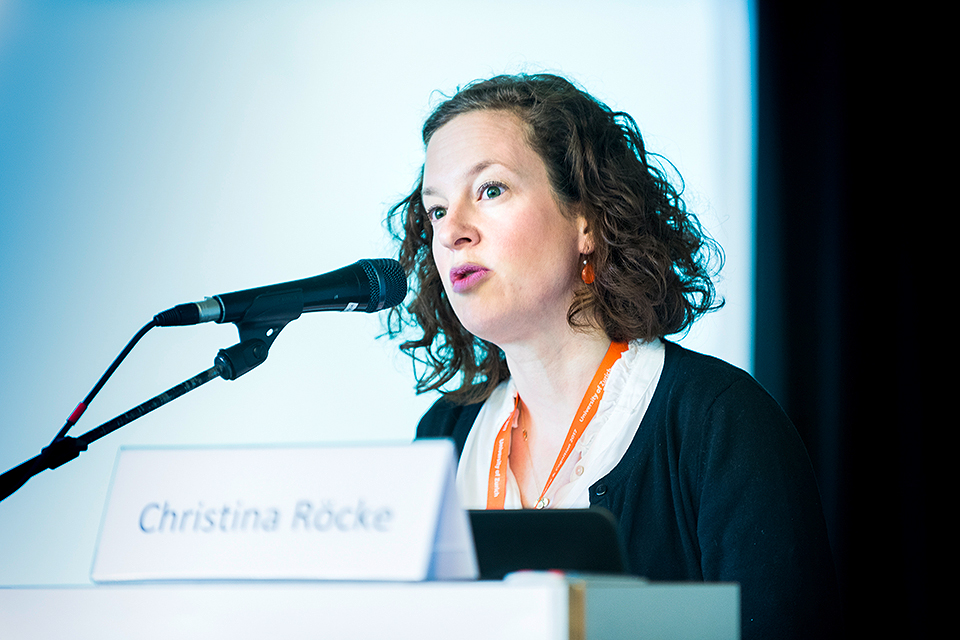
Meet the experts: Dr. Christina Röcke talks Cognition, Social Relations, and Emotional Well-Being
Dr. Christina Röcke is Deputy Director and Head of Research Group of the University Research Priority Program “Dynamics of Healthy Ageing” at the University of Zurich, Switzerland. In NESTORE, she was appointed as the expert for cognition, social relations, subjective (emotional) well-being, behaviour change, and quantitative empirical ageing studies. She answers our questions.
As an expert, what is your role in the project?
Our main role is to identify the most important characteristics in the domains of cognition, social relations, and subjective (emotional) well-being that are needed to describe individuals' typical and more stable levels of functioning in these domains. We also aim at identifying the characteristics that can help to monitor and describe the day-to-day fluctuations in those three domains as people live their lives. For this we needed to identify not only the variables but also the best way of measuring these aspects in daily life, using mobile technology.
In addition, as the psychologists in the consortium, our role is to identify and develop the necessary behavior change techniques (i.e., messages that remind and encourage people throughout the coaching phase) in order to sustain users' motivation to adopt a new lifestyle and stick with their own plans even when things get a bit difficult.
Lastly, we provide inputs on the setup and practical implications for the planned pilot study that will test the feasibility and provide a first glimpse into the effectivenss of the planned system and intervention.
What would be the main benefits of using NESTORE?
Many interventions in the ageing and health domain focus on only one domain (e.g., physical activity, cognitive training) and they recommend the same for every person. In NESTORE we take the approach to focus on four key health domains at the same time, and develop a data-based tool with information from the individual person to best provide a coaching suggestion that fits the individual needs of each person.
On the other hand, the individual puzzle pieces or components of the proposed coachings in each of the four domains are very much evidence-based, to make sure we recommend activities and actions that are both theory- and evidence-driven. We also closely work in a framework of behaviour change that considers those aspects that can help individuals overcome the obstacles that many people face when trying to adopt and follow a healthy lifestyle.
NESTORE could ideally help interested individuals to change their lifestyle in a sustainable way across multiple domains, and thus provide them with a companion-like toolkit supporting this lifestyle to really stick with for a long time – ideally forever.
How do you think digital technologies will change the practice of healthcare professionals in your field of expertise?
In my view, digital technology will empower the individuals, to collect data about their own health, and to do this in a least obtrusive way. Individuals can then choose to share these data with their healthcare professionals, who in return can rely on much more than single snapshots of laboratory based or retrospective self-reports of their patients.
This will in the long run help to make better and more suitable diagnoses and treatment recommendations - and enable a much more ecologically valid (that is mapping the true everyday life of people) evaluation of what works and what does not to help sustain independence and functional ability of adults as they age.
Read Dr. Christina Röcke's publications
Read PhD Noemi Boqué Terré's interview, our expert in nutrition


